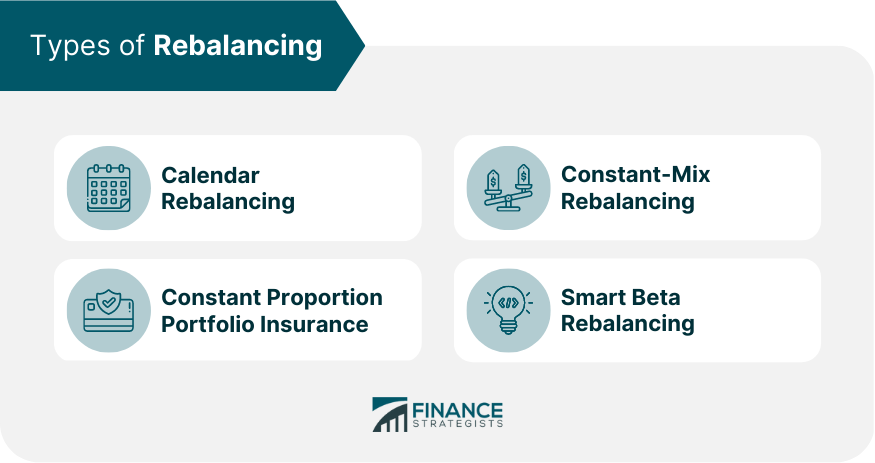5 Year Fixed Annuity| How Does it Work? Are you looking for a safe and reliable way to invest your money? Have you considered investing in a 5-year fixed annuity? A 5-year fixed annuity is an investment option that provides guaranteed payments over a designated period of time. It’s one of the safest investments available, and it can be used to supplement retirement income or as part of an overall financial plan. In this article, we’ll discuss the ins and outs of 5-year fixed annuities so you can decide if they’re right for you.
The robust nature of these products makes them ideal for people who are seeking long-term security and stability from their investments. With a fixed annuity, your principal amount is safe and you earn interest at a set rate for as long as the contract is in effect.Additionally, these contracts are designed to provide consistent returns with minimal risk. By understanding how these investments work, you’ll have all the information necessary to make an informed decision about whether or not they’re suitable for your specific goals and needs.
If you’re interested in learning more about what a 5-year fixed annuity entails, read on! We’ll explore details such as benefits, risks, pricing options, and tips to help maximize your return potential—allowing you to make sound decisions when it comes to protecting your wealth in today’s ever-changing market environment.
Overview of Fixed Annuities
At first glance, fixed annuities may seem like a complex financial product. But in reality, they are straightforward investments with many benefits and protections that can help you achieve your long-term goals. Fixed annuities provide legal advice to those looking for protection from ordinary income tax and offer guaranteed interest rates, so you don’t have to worry about fluctuating annuity rates. Insurance companies back these products and typically include death benefit riders as well as market value adjustment features and withdrawal charges. Some fixed annuities are even NCUA-insured, offering an added layer of security for investors.
Even though fixed annuities have their benefits, it’s important to keep in mind that they shouldn’t be used in place of investment advice.They are best for people who want steady growth over time, not short-term gains or trading opportunities based on speculation.With this understanding, let’s take a closer look at the benefits of five-year fixed annuities.
Benefits of Five-Year Fixed Annuities
Five-year fixed annuities are a type of annuity product that offers multi-year guaranteed payments and tax-deferred growth. These products can provide retirees with additional income to supplement their retirement savings without having to pay taxes on the earnings until withdrawals are made. The main benefit of these five-year annuities is that they come with an initial free withdrawal amount, meaning you don’t have to wait for all your money to be invested before taking advantage of it. In addition, they also offer several other benefits, such as annuity guarantees, no IRS penalty on early withdrawals, and renewal rates after each contract year.
Another key benefit of five-year fixed annuities is the length of the contract period. This allows investors more time to reap the rewards of their investments while protecting against market volatility. Furthermore, because many contracts guarantee a certain percentage rate for up to five years or longer, this provides peace of mind knowing that there will always be a steady stream of income regardless of how markets fluctuate during those periods.
Overall, five-year fixed annuities can be beneficial for people looking for reliable long-term income streams in retirement. They offer tax deferral opportunities, protection from market fluctuations, and potentially higher returns than traditional investment options over the life of the policy. With these advantages combined with the minimal fees and commissions associated with them, five-year fixed annuities may be worth considering when building out your retirement portfolio. To learn more about the types of five-year fixed annuities available today, read on.
Types of Five-Year Fixed Annuities
A five-year fixed annuity is an insurance product that provides a guaranteed stream of income for the duration of its term. Annuities are usually purchased through an annuity company, and they guarantee a specific rate of return on their investments. The annuity holder can be assured that they will receive a predetermined amount each year until the end of the contract period.
When selecting a five-year fixed annuity, it’s important to consider several factors, such as:
* The claims-paying ability of the issuing insurance company
* The financial strength of the issuing insurance company
* The fixed interest rate offered by the issuer
* Any surrender charges associated with early withdrawal from the annuity contract
In addition to these considerations, investors should also take into account any tax deferral benefits associated with investing in a fixed deferred annuity. By doing so, they can ensure that they maximize their returns while minimizing their taxes over time.
5 Year Fixed Annuity| How Does it Work?
Choosing a five-year fixed annuity requires careful evaluation and research into all aspects of the investment, including fees and features. With this information in hand, investors can make informed decisions about which type of annuity best suits their needs and objectives.
How toa Choose A Five-Year Fixed Annuity
When considering a five-year fixed annuity, it is important to consider the options available. Like searching for a needle in a haystack, one must be wary of potential pitfalls and find the best option to fit their financial needs. The key elements to finding the right product are understanding compound interest, researching competitive rates, and weighing out tax advantages.
Compound interest refers to an investment that earns returns on both the principal and accrued interest over time. This type of feature is especially beneficial when investing in an annuity because one can receive higher returns than other types of investments with less market risk. When choosing a five-year fixed annuity, make sure to look for ones that offer the highest rates of return with a guaranteed rate of return during the specified period of time.
In addition, research into different companies or institutions offering different plans may lead you towards more competitive rates than what is currently offered by your current provider or institution. Furthermore, if there are any cash value benefits associated with such products, do not hesitate to explore them, as they could provide additional tax advantages beyond those already provided by the annuity itself.
Ultimately, it pays off to invest in some due diligence before committing yourself to any sort of contract; this way, you can ensure that you have chosen the most appropriate plan based on your needs and budget constraints. Understanding terms and conditions should also be part of your selection criteria so that you know exactly what fees will apply and can avoid any unexpected surprises down the line.

Understanding the Terms and Conditions
Now that you have a better understanding of five-year fixed annuities, it is important to understand the terms and conditions before investing. When considering an annuity, you should be aware of lifetime income options, tax implications, withdrawal fees, and state variations.
* Investigate the annuity corporation’s privacy policy for any limitations on withdrawals.
* Be mindful of early withdrawals or withdrawals of taxable amounts as they can incur additional fees.
* Understand what type of income payments will come from your index annuities.
Research any relevant state variations regarding income taxes and financial planners.
It is also essential to review the financial strength ratings and claim-paying ability of the company offering the annuity contract.
Financial Strength Ratings and Claim Paying Ability
The claim-paying ability of the issuing insurer is a key factor in selecting an annuity. Financial strength ratings provide useful insight into the financial stability and overall health of life insurance companies, such as New York Life Insurance Company and Western Southern Life Assurance Company. These ratings measure how likely it is that these insurers will honor their contractual obligations to pay out lump sums or immediate annuities over time at fixed rates of interest.
Renewal interest rates are important considerations when evaluating an annuity’s potential return on investment. The rating agencies analyze factors like the quality of investments, management practices, capital structure, and risk profile to assess each company’s ability to meet its future payment commitments under various scenarios. Those with higher ratings typically have more predictable long-term returns than those with lower ones.
Terminal illness riders can be beneficial for those who wish to receive accelerated payments due to a terminal condition. Companies with strong claim-paying abilities are better equipped to handle these types of situations because they tend to have ample reserves available if needed.
These features make financial strength ratings invaluable tools for evaluating annuities since they provide reassurance that the issuer has the capacity to fulfill its promises regarding payments over the life of the contract. This helps ensure peace of mind knowing one’s funds are secure, even during difficult economic times. Moving forward, it is also essential to consider the tax-deferred growth potential offered by different options when making decisions about which annuity product best fits individual needs and objectives.
Tax-deferred growth potential
Ah, the beauty of tax-deferred growth potential. Who could deny its allure? It’s almost too good to be true—but it is! With a fixed annuity, you can enjoy the benefits of compound interest without worrying about paying taxes on your earnings. Thanks to the federal government agency that regulates these investments, you are able to benefit from current rates and defer taxation until withdrawal or maturity of the contract value.
The best part? There’s no additional cost for this great opportunity. You don’t need a qualified plan like an IRA or Roth IRA; just choose a set period of time and let your money grow in peace. And if you’re still feeling unsure about investing in a fixed annuity, then seek out professional tax advice so you can make an informed decision.
Plus, unlike other types of investments such as stocks and variable annuities, there’s less risk involved with fixed annuities since they offer guaranteed returns regardless of what happens in the stock market. So why not take advantage of this great opportunity today?
Interest Rates and Compounding Interest
Fixed annuities offer higher rates of return than many other financial products, including bank CDs. The availability of this product also differs from state to state. It’s important for potential purchasers to check with their individual legal advisors regarding the complete details and any relevant financial obligations associated with investing in a fixed annuity.
The market volatility that can affect investments in fixed annuities is something else that should be taken into consideration when making such an investment decision. Partial withdrawals may not always be allowed and could come with fees or penalties depending on the particular Delaware corporation offering them.
It’s essential to understand all restrictions and possible consequences before signing a contract involving a fixed annuity. Doing research ahead of time and consulting a professional are great steps toward understanding everything involved with these kinds of financial commitments. To ensure stability and security, one must weigh all options carefully before moving forward. Transitioning now to early withdrawals, surrender charges, and death benefits…

Early Withdrawals, Surrender Charges, and Death Benefit
Transitioning from the previous section, let us explore early withdrawals, surrender charges, and death benefits of a one-year fixed annuity. These are important considerations when making financial decisions. To begin with, there may be a sales charge incurred in the first year for investing in a 1-year fixed annuity; however, it varies based on the member of FINRA (the Financial Industry Regulatory Authority) or Delaware corporation that is providing this product.
The individual situation should always be taken into consideration when deciding whether to invest in an annuity. For example, if you live in San Antonio and need help understanding insurance products and their associated fees, contact our customer service team at 888-888-888 for personalized advice regarding your specific financial situation.
Finally, all year-round fixed annuities come with a death benefit, which ensures that beneficiaries receive payments even after the insured has passed away. This can provide peace of mind knowing that loved ones are taken care of, regardless of any unexpected events. As such, multi-year guaranteed annuities offer higher rates compared to one-year options due to the additional years invested as well as other advantages they may have over single-year contracts.
Multi-Year Guaranteed Annuity Offers Higher Rates
A multi-year guaranteed annuity (MYGA) offers higher rates than a traditional one-year fixed annuity. In some cases, the rate of return can be two to three times as high as with other annuities offered by insurance companies. The marketing name for MYGAs is often used interchangeably with “guaranteed annuities,” and they offer an attractive interest rate over multiple years.
When considering whether or not this type of financial product is right for you, it’s important to consult with a financial professional who understands your individual needs and goals. An advisor will help you evaluate all available options in order to make an informed decision that works best for you.
It’s also important to note that while MYGAs do offer higher returns than other types of annuities, there are potential risks involved when investing in one of these products. These include additional taxes, fees, and commissions, which may reduce the overall value of the investment over time. Ultimately, any final decision should take into account both the long-term benefits and associated risks before committing funds to this type of asset.
Given their potentially high rewards and corresponding considerations, understanding how a multi-year guaranteed annuity fits into your portfolio could provide greater insight into achieving your desired financial objectives. From here, we’ll explore other financial products available from insurance companies.
Financial Products Available from Insurance Companies
The world of insurance offers a range of products designed to meet different needs. From life and health to long-term care and disability, each type of coverage serves its own purpose. But with the ever-increasing cost of living, many people are turning towards fixed annuities as another form of financial security. A fixed annuity is an agreement between you and an insurance company that guarantees regular payments over a set period of time in exchange for your investment.
Fixed annuities come in two types: immediate and deferred. Immediate annuities start paying out immediately after purchase, whereas deferred annuities accumulate interest until maturity or withdrawal. Both provide tax advantages compared to other investments such as stocks, bonds, mutual funds, etc., since the money earned from them is not taxed until it is withdrawn. The rate at which your money grows depends on several factors, including age, gender, the amount invested, and the duration of the contract.
Before making any decisions regarding investing in a fixed annuity, it’s important to understand the terms offered by the insurer, which include renewal rates, free withdrawal amounts, and more. Doing some research will help ensure that you make an informed decision when choosing a product that best suits your individual needs and helps protect your finances in both the short term and long term.
5 Year Fixed Annuity| How Does it Work?
Renewal Rates and Free Withdrawal Amounts
Renewal rates are a key factor in determining the amount of money you will receive from your fixed annuity. Generally, renewal rates are determined by the insurer and vary depending on market conditions. Fixed annuities usually have higher renewal rates than variable annuities, but they may also come with some restrictions or fees attached.
It’s important to understand free withdrawal amounts when considering a fixed annuity. Free withdrawals allow you to take out a portion of your funds without having to pay any penalty or surrender charge. Depending on the terms of the contract, this could mean that you can withdraw up to 10% of your account balance each year without incurring any costs. This feature is especially beneficial for those who need access to their funds quickly or unexpectedly.
Before deciding which type of fixed annuity is best for you, it’s essential to research state variations, product availability, and consult legal advisors about the tax implications associated with these products. Doing so can help ensure that you make an informed decision and get maximum value from your investment. With this knowledge in hand, you’ll be better equipped to make the right choice for your financial needs.
State Variations, Product Availability, and Legal Advisors
When considering a five-year fixed annuity, it is important to understand the variations in state laws as well as product availability. Each state has its own regulations and tax structures that affect how an annuity will be purchased, administered, and taxed. As such, it’s important to consult with legal advisors or financial planners who are knowledgeable about the particular requirements of your state.
Additionally, different types of five-year fixed annuities may have differing investment options depending on the provider. These can range from guaranteed returns to more aggressive investments that offer higher potential gains but also come with greater risk. Investors should carefully evaluate their goals and preferences before selecting an appropriate option for their situation.
It is essential to thoroughly weigh all possible options prior to making any decisions related to a five-year fixed annuity. With this in mind, understanding the relevant rules and regulations regarding each type of annuity, along with consulting an expert advisor when necessary, can help ensure that investors make wise choices when investing in these products. This leads us into our next section, which looks at considerations for Roth IRA holders when evaluating five-year fixed annuities…

Roth Ira Consideration for Five-Year Fixed Annuities
Like a puzzle to be solved, selecting the right annuity for your retirement can seem like navigating a maze. With so many options and features available, it is important to understand the different types of annuities before making an informed decision.
One type of annuity that you may consider is a five-year fixed annuity with Roth IRA provisions. Here are some key points about this option:
Tax Considerations
Contributions made to the Roth IRA are not tax deductible.
Qualified distributions from the Roth IRA are not taxable.
Any earnings in the account grow tax-free.
Investment options
Investing choices include stocks, bonds, mutual funds, and exchange-traded funds (ETFs).
Risk levels vary based on investment preferences.
**Withdrawal Rules**
Early withdrawal penalties may apply prior to age 59 1/2, depending upon individual circumstances.
There may also be limitations on when withdrawals can begin.
The potential benefits of investing in a five-year fixed annuity with Roth IRA provisions should always be weighed against any associated costs or restrictions. Understanding these details will help you make an informed choice for your particular financial situation. Moving forward, we’ll take an overview of federally insured programs offered by NCUA as another way to save for retirement.
An Overview of Federal Government Agency NCUA Insured Programs
The National Credit Union Administration (NCUA) is a federal government agency that insures and regulates credit unions across the United States. NCUA-insured programs provide protection for members’ deposits in federally-insured credit unions, up to $250,000 per individual account holder. This ensures that funds deposited into an NCUA-insured program are secure if the credit union collapses or becomes insolvent.
In addition to deposit insurance, NCUA also offers other services such as consumer information about financial products available at credit unions, assistance with compliance with regulations, and guidance on setting up sound internal management practices. The agency provides tools and resources to help credit unions better serve their members while maintaining safety and soundness within the industry.
By taking advantage of NCUA’s various programs, consumers can rest assured knowing they have access to safe and secure financial institutions where their money will be protected by federal law no matter what happens down the road.
5 Year Fixed Annuity| How Does it Work?
Frequently Asked Questions
What Is The Average Return Rate For A Five-Year Fixed Annuity?
The promise of a fixed income is an attractive proposition for many, and the five-year fixed annuity offers a chance to secure financial stability over time. But what kind of return rate should one expect? It’s natural to want the highest possible returns on your investment. In order to answer this question, we must consider factors such as market performance, risk tolerance, and the type of annuity purchased.
Generally speaking, the average return rate for a five-year fixed annuity will depend in part on how long one has held it for, but typically falls between 3% and 5%. Of course, there are other variables at play here too; some investors may see higher or lower returns depending on their individual circumstances. Many investors also opt for variable annuities with greater potential returns that come with more risk than a traditional fixed option.
No matter which route you choose, understanding all your options before committing any money is key when investing in an annuity. Researching the available products and reading up on rates and terms can help you make an informed decision about which product best suits your needs. Knowing these details ahead of time can save you both time and money down the road.
Is A Five-Year Fixed Annuity A Good Investment For Retirement?
Investing for retirement can be a complex and daunting task. With so many different options, it can be difficult to know which is the best plan for your future. One of these choices is a five-year fixed annuity, but is it really a good investment? In this article, we will explore whether or not this kind of annuity is suitable for retirement savings.
A five-year fixed annuity allows you to invest in an account that pays out interest at regular intervals over a period of time—usually five years. The rate of return on these investments varies depending on the type of annuity chosen and the terms of the agreement, but they typically offer higher returns than typical bank accounts. Additionally, since they are generally considered low-risk investments, they may provide more stability in comparison to stocks or bonds.
Despite their relative safety and potential long-term benefits, there are some drawbacks to investing in a five-year fixed annuity. For example, if you need access to funds early in the course of your investment, penalties may apply for withdrawing money before the end of the term. Furthermore, although rates tend to remain relatively stable throughout the life of the contract, inflation can cause them to become less valuable as time passes.
In short, while a five-year fixed annuity offers investors certain advantages, such as security and potentially higher returns compared with other types of investments, when deciding whether or not it’s right for your retirement portfolio, careful consideration should be given to all factors, including any applicable fees or risks associated with withdrawal restrictions, before making your decision.
Are There Any Penalties For Early Withdrawal Of A Five-Year Fixed Annuity?
Putting money into a fixed annuity can be a great way to make sure you have enough money when you retire. However, understanding the details of an annuity is important before making any decisions. One such detail is whether or not there are penalties for early withdrawal from a five-year fixed annuity. It’s important to know what risks and rewards come with this type of investment so that you can make an informed decision about your future finances.
Generally speaking, most annuities have surrender charges if you decide to cash out earlier than expected. These charges vary from provider to provider, but they tend to decrease over time as more payments are made under the contract. For example, someone who withdraws funds within the first year may face higher fees than those withdrawing later down the line. Additionally, tax implications should also be taken into consideration when deciding whether or not it’s worth cashing out of a five-year fixed annuity early.
Ultimately, while there may be some benefits associated with taking money out of a five-year fixed annuity before its maturity date, one should also consider how much they stand to lose in terms of potential gains due to early withdrawal penalties and taxes. There could still be advantages depending on individual circumstances; however, it’s always advisable to seek advice from an expert before taking any action regarding investments like these.
How Do I Know If An Insurance Company Offering A Five-Year Fixed Annuity Is Financially Sound?
Investing in a five-year fixed annuity can be an important financial tool, but how do you know if the insurance company offering it is financially sound? This question should not be taken lightly, as there are many factors to consider when choosing where to invest your money. To ensure that your investment will remain secure, it’s essential to research the company and its track record before committing.
As with any major decision involving finances, the best way to start is by looking at data such as ratings from industry experts and analysts. These ratings provide insights into a company’s performance over time and can give you an idea of their stability and reliability. You may also want to look at customer reviews or read up on news stories related to the insurer’s past behavior. All this information can help you make an informed decision when considering investing in a five-year fixed annuity with them.
When examining any potential investments, always remember to trust your gut too. If something doesn’t feel right about a particular company, don’t risk putting all your eggs in one basket! Like stepping stones across a river, take small steps towards researching each and every aspect of the insurer, so that eventually you’ll have enough knowledge about their reputation and history for you to cross safely over into making a wise investment choice that won’t leave you feeling like you’ve been left high and dry.
How Long Do I Need to Hold a Five-Year Fixed Annuity Before I Can Make Free Withdrawals?
When considering purchasing a five-year fixed annuity, it is important to know how long you need to hold the investment before making free withdrawals. Generally speaking, after the initial surrender period has passed (which varies depending on the product and provider), investors can begin making penalty-free withdrawals from their annuity.
However, there are several factors that must be taken into account when determining how long an investor needs to hold onto their annuity in order to make free withdrawals. For example, some policies may have additional provisions with regards to withdrawal restrictions or fees associated with early termination of the contract. It is also important to note that different providers may have different terms regarding penalties for early withdrawal, so it’s best to read through all documentation carefully prior to investing.
Investors who are interested in a five-year fixed annuity should talk to the insurance company directly to find out if there are any rules or regulations about taking money out without having to pay penalties. Additionally, researching the financial stability of a company prior to investing can help ensure that your money will remain safe even if you decide to terminate your agreement early.
Conclusion
In conclusion, a five-year fixed annuity can be a great investment for retirement when chosen wisely. It’s important to do your research and choose an insurance company that is financially sound. The average return rate on a five-year fixed annuity is 3.7%, which is higher than the traditional CD or savings account option. There are no penalties for early withdrawal as long as you have held the annuity for at least five years.
If you’re looking for an opportunity to generate consistent income in retirement, then a five-year fixed annuity may be right for you. Even though it doesn’t provide the same high returns as some other investments, its safety and security make up for this shortcoming. I encourage anyone considering investing in a five-year fixed annuity to carefully evaluate their options and understand what they are getting into before making any financial commitments.
With proper planning and due diligence, a five-year fixed annuity could be just what you need to secure your financial future during retirement. You don’t want to miss out on the potential benefits of adding this type of product to your portfolio!












Leave a Reply